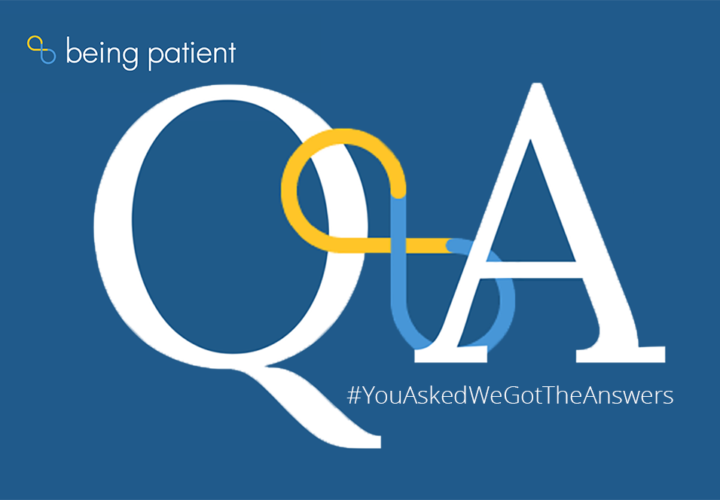Cannabis has never been easier to come by: Canada just legalized recreational marijuana, joining nine states in the U.S. Another 21 states have legalized marijuana for medical conditions. Could marijuana treat Alzheimer’s? We spoke to Dr. Nathan Herrmann, the head of the division of geriatric psychiatry at Sunnybrook Health Sciences Centre in Canada and one of the few researchers who studies the impact of cannibinoids on treating aggression and anxiety in Alzheimer’s patients, about whether caregivers should consider this alternative.
When Herrmann and his team first looked at studies of cannabinoids and Alzheimer’s disease, they found that less than 150 patients with Alzheimer’s have been included in clinical trials. Most of these studies did not show that cannabinoids had any benefit in reducing agitation or aggression in Alzheimer’s patients.
Because of the limited research on the subject, Herrmann and Dr. Krista Lanctôt decided to study whether nabilone, a synthetic canninboid, could be used to treat agitation in Alzheimer’s patients. They presented their results at this year’s Alzheimer’s Association International Conference.
- The team found that compared to a placebo, nabilone did a better job of reducing aggression and anxiety in Alzheimer’s patients
- Herrmann emphasizes that their results should not be viewed as proof that medical marijuana is a safe and effective method for treating Alzheimer’s disease since nabilone and medical marijuana are not the same
- In the future, Herrmann hopes to conduct a larger study to get a better idea of whether or not nabilone can be used as a treatment for aggression and anxiety in Alzheimer’s patients
Being Patient spoke to Dr. Herrmann about his study and whether there are any cognitive benefits to using cannabinoids.
Being Patient: What do researchers know about the effects of cannabinoids on reducing aggression and anxiety in those with Alzheimer’s disease? What are researchers still hoping to learn?
Dr. Nathan Herrmann: There are very few studies that have examined the effect of cannabinoids on aggression and anxiety in Alzheimer’s disease and all of them involve only a small number of patients. However, based on some preliminary studies in other populations, like younger individuals with schizophrenia and bipolar disorder, as well as animal studies, there is at least some reason to theorize these drugs would have a benefit. Therefore, there is a crucial need to do more, and larger studies in patients with Alzheimer’s disease to determine their effects and side effects. We need a better idea of how effective they are, what type of agitation is helped the most, what is the best dose to use and which type of cannabinoid would be best. Whether these drugs are truly safe is also a key question that needs to be addressed with better research.
Being Patient: Do researchers know if there are any cognitive benefits to cannabinoids, besides reducing aggression or anxiety?
Dr. Nathan Herrmann: There is no reason to suspect that cannabinoids would improve cognitive abilities in Alzheimer’s disease. In fact, there is good reason to be concerned that cannabinoids could make cognitive function worse, either by direct effects, or by causing excessive sedation.
Being Patient: Why did you decide to test synthetic cannabinoids in your study?
Dr. Nathan Herrmann: Synthetic cannabinoids are produced by drug companies, their formulation is completely standardized and the drug must be approved by the FDA to ensure efficacy and safety. This is in complete contradistinction to medical marijuana. Nabilone was chosen specifically because it has already been available for many years as a treatment for chemotherapy-induced nausea and vomiting, so its safety profile is well documented. With medical marijuana, there is a significant problem with standardization of the active ingredients and the delivery of the drug to the bloodstream.
Being Patient: Is there any research being done on CBD oil and its impact on Alzheimer’s patients?
Dr. Nathan Herrmann: I don’t recommend using CBD oil due to potential side effects and the lack of research on it. Having just checked the American and European drug trial registries, I can report that there are currently no trials involving CBD oil for Alzheimer’s disease. Of the four cannabinoid studies registered involving Alzheimer’s disease patients, some of them use compounds that include both THC and CBD, but none use CBD oil alone.
Being Patient: Can you tell us more about the chemicals in cannabis and how they may influence behavior?
Dr. Nathan Herrmann: The most important active chemicals in cannabis (or marijuana) are THC and CBD. THC is best known for its intoxicating effects and that’s why it is used for “recreational” purposes. CBD has some mild anti-anxiety effects, but also appears to help pain, improves nausea and has some anti-inflammatory effects. These chemicals might help some aspects of Alzheimer’s disease, but might also cause worrisome side effects including sedation, worsening of memory and other cognitive functions, and even psychotic symptoms. Nabilone’s chemical effects differ somewhat from both THC and CBD.
Being Patient: Has any research been done on how cannabinoids interact with prescription medications? If not, what might future research on that topic look like?
Dr. Nathan Herrmann: Since there are so few studies, we don’t truly know the answer to this crucial question. From some animal and preliminary studies, we know these drugs can have interaction effects with some important medical drugs, like warfarin (COUMADIN), a common drug used to treat stroke, atrial fibrillation and deep vein thrombosis.
Being Patient: Where is future research on cannabinoids and Alzheimer’s headed? What do researchers still hope to focus on or learn more about?
Dr. Nathan Herrmann: Based on the results from our study, it’s certainly worthwhile to repeat a study with nabilone using a larger number of patients and a longer time frame. The other synthetic, dronabinol, should also be studied. Given the concerns about preparation standardization and drug delivery I mentioned above with medical marijuana, I am not convinced these should be recommended by physicians. We also should determine whether these drugs can safely treat pain and improve appetite in Alzheimer’s disease. Finally, the anti-inflammatory effects might also have disease-modifying effects.




I’d also be curious to see if marijuana/CBD could be used to PREVENT Alzheimer’s. I’ve read that it has neuroprotective properties so I think it’s highly likely that it could.
I would like to know the answer to Anton’s question. I have also wondered if CBD would provide an anti-inflammatory that could prevent Alzheimer’s.
Before CBD i was was8 lost three blocks from our home of 30 years. I now drive all over town,….. with pre-thinking.
I saw improvement in 24 or 48 hours after taking a small amount. I now take extre amounts of 84 twice a day.
Adding thinking time to my life!
I have been reading a lot of studies/research is going on in the cannabis industry especially after the Farm bill 2018. It would be really helpful if cannabis or cannabidiol could help to treat conditions like Alzheimer.
I discovered cbd oil worked to restore my cognitive abilities a year after diagnosed with Alzheimer’s. Cannabis gave me my life back.
Cannabis useful in handling terror of losing ability to write, speak, evaluate. Use of cbd oil lowered my stress and gave me some function back. It helps me sleep. ends rages. Take cbd drops & within 20 minutes am able to dress myself without thinking. I can walk dog, do laundry, study news, write in journal. 5 – 10 drops under tongue for a minute, works in under 20 minutes, not stoned. cannabis allows me to sleep, major problem for ALZ. Fear, anger, depression = 3 common helped problems. When no studies are done, they say there is “no evidence it works”. No time to wait. If anyone is suffering from, or taking care of someone, with dementia’s give them the chance to find comfort in cannabis. Caregivers enjoy cannabis with their loved ones.